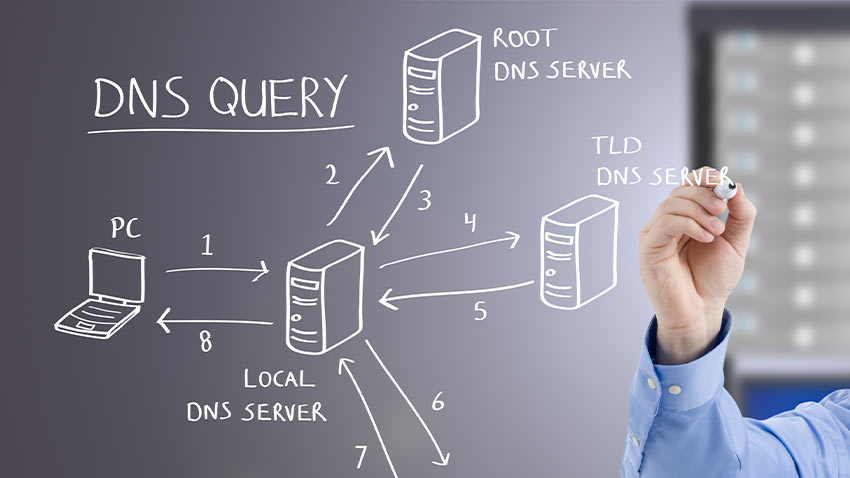A name server is a crucial component of the Domain Name System (DNS). Its primary function is to enable access to a website through its domain name rather than its IP address.
The DNS and name servers
Name servers are an integral part of the DNS, the system that translates domain names into their respective IP addresses. While web hosting providers manage domain names, international governing authorities handle IP addresses.
What is an IP address
An IP (Internet Protocol) address is a numerical value consisting of four series of digits separated by dots, ranging from 0 to 255. This address is essential for enabling any form of data transfer. IP addresses can be public, private, static, or dynamic.
A public IP address is visible and accessible by all hosts, whereas private IP addresses are generally used by local networks to identify devices within the network.
Dynamic IP addresses are typically used for web navigation as they offer greater privacy protection, allowing for a more anonymous browsing experience. They are called dynamic because the address changes after every session or every 24 hours. In contrast, static IP addresses do not change and are often used within local networks to connect devices that are part of the same network.
How a name server works
As we’ve seen, to access a web page you need an IP address, which is made up of a series of digits that are essentially impossible to remember for a user looking for a specific website. The simple act of opening a browser, typing in a domain, and obtaining the requested web resource is possible thanks to name servers.
The role of name servers is to convert URLs into their corresponding IP addresses. In other words, without name servers, all internet users would have to keep a list of IP addresses to paste into the URL bar to access specific web resources.
In closing, here’s a fun fact: since every domain has its IP address, if you open a new tab and paste “31.13.86.36”, you’ll be directed to facebook.com. An urban myth suggests that if an IP address is close to that of a prominent website, proximity alone is enough to score highly in search engine result pages.
If such a statement were true, it would be a gross oversimplification of how Google works. Even if IP proximity did factor into index ranking, it would still only be one of over 200 relevant IP addresses.
That is to say, there are no shortcuts, as always.











